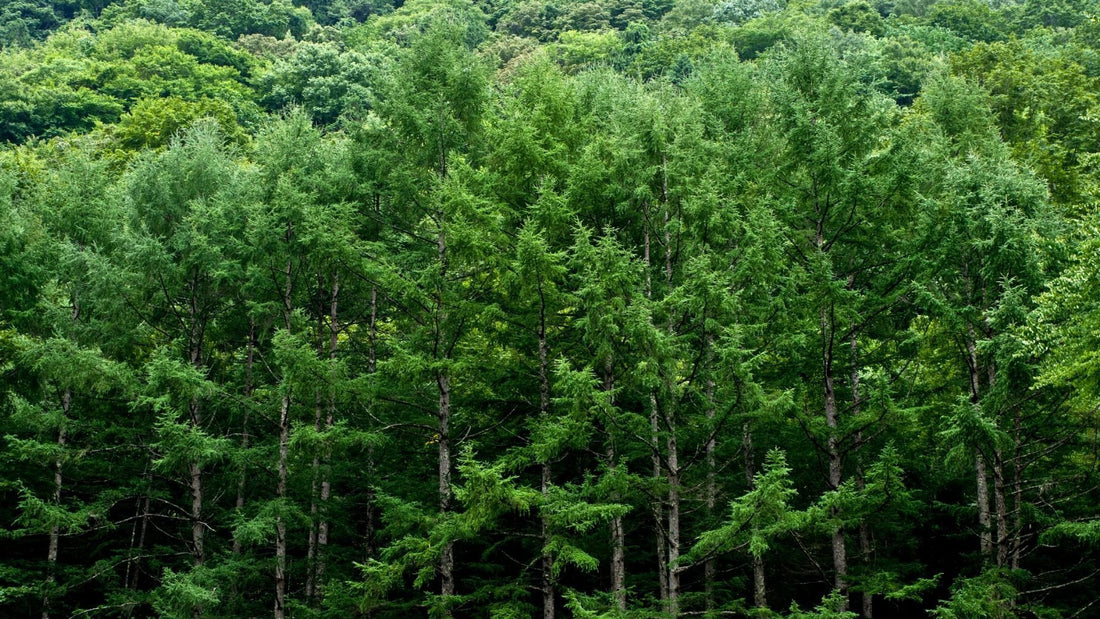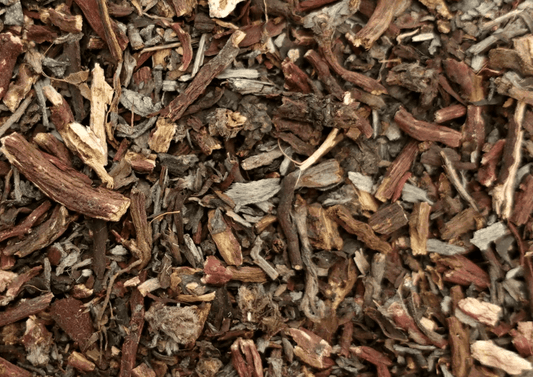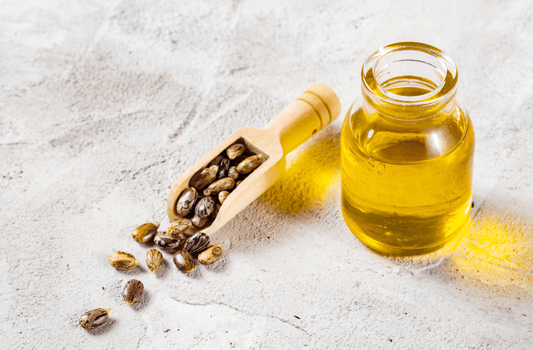More of us are moving towards more natural and affordable options when it comes to the products we use daily, and essential oils, including cedarwood essential oil, are an amazing ingredient to use in homemade hair care. With varied therapeutic benefits, you can add them to shampoo bars and conditioners to tailor a product that’s perfect for you.
That said, they’re not miracle workers. No matter what’s claimed elsewhere on the internet.
We’ve already combed through rosemary oil, black seed oil, peppermint oil, and lavender oil’s haircare claims to dissect the details. Now it’s cedarwood oil’s turn.
Contents
- What is cedarwood essential oil?
- What are the claims?
- What is the evidence?
- What does the evidence mean?
- Conclusion
What is cedarwood essential oil?
Cedarwood essential oil, as the name suggests, is extracted from the wood of Cedar trees through steam distillation. There are many varieties of cedar trees around the world, and we distill our organic cedarwood atlas essential oil from the wood of the Atlas cedar trees native to Morocco.
Cedarwood essential oils needs to be diluted in a carrier oil (like sweet almond oil). It's important to use diluted cedarwood oil to avoid skin irritation and maximize its benefits for hair growth.
We love cedarwood essential oil for its comforting, woody aroma. Think cozying up with a book and unwinding after a long day.
It’s also long been used for its therapeutic benefits, including the treatment of respiratory and skin problems, and its anti bacterial properties.
But what can cedarwood essential oil do for your hair?
The claim: cedarwood oil can treat hair loss
You might have come across an article online that suggests using cedarwood oil for hair loss and to promote new hair growth.
We’ve found they tend to follow the same logic: cedarwood essential oil stimulates hair follicles and increases circulation to the scalp, which supports hair growth and slows hair loss.
Of course, that’s a vague and unsubstantiated idea that needs solid evidence behind it to be true.
While there are lots of claims that cedarwood essential oil is good for hair growth, there’s only one study that can potentially back them up.

The evidence: Cedarwood oil for hair study
A 2010 clinical review looked at the evidence for various treatments of alopecia areata, a condition that causes the immune system to attack hair follicles, leading to hair loss.
It briefly mentions a small study from 1998, in which Cedarwood essential oil played a small part.
The study used a blend of essential oils and carrier oils massaged into the scalp daily, which resulted in significant hair growth compared to a control group that used the carrier oils alone.
This was the exact recipe they used:
- Thyme essential oil 1g
- Lavender essential oil 1g
- Rosemary essential oil 1g
- Cedarwood atlas essential oil 1g
- Jojoba oil 26g | 30ml
- Grapeseed oil 190g | 200ml
The participants were responsible for massaging the mixture into their scalp for 2 minutes each day, wrapping a warm towel around their heads, and repeating the routine every night for 7 months.
The commitment seemed to have paid off, as 44% of the participants showed an improvement in their alopecia. There were positive changes in hair length and thickness too.
The evidence is promising, but we like to tread with caution before we make any claims.

Our take: what can we really claim about cedarwood oil for hair?
You might remember the study above from our previous articles on rosemary oil and lavender oil for hair. The criticisms remain the same here, as they did there.
Firstly, the study used a blend of oils, so you can’t tell whether the results were down to the cedarwood essential oil, or the other oils. Since this is the only study on cedarwood oil for hair loss, it’s most likely down to something else in the blend.
Secondly, the sample was too small to make big generalizations. Only 86 participants took part. The hair growth could be down to several other factors within the specific group.
And finally, the study only included people experiencing hair loss due to alopecia areata.
This excludes the most common type of hair loss, androgenetic alopecia, which you might also know as male (or female) pattern baldness. It also doesn’t consider less common types of hair loss, like anagen effluvium (associated with chemotherapy), telogen effluvium (occurs after a traumatic event), and hair loss that’s due to anemia, pregnancy, or mental illnesses.
If you're trying to improve hair growth due to other types of hair loss, the study isn’t relevant to you.
So what can we claim?
Cedarwood essential oil used in a specific blend with other essential oils may aid hair growth for those suffering from alopecia araeta. That’s it.

Conclusion: Does cedarwood oil for hair loss work?
Ultimately, cedarwood essential oil could work for hair loss. And, who knows, there might be people out there with thick healthy locks who swear by it. But there’s certainly not enough evidence for us to say for sure.
When it comes to homemade haircare, we recommend choosing an essential oil with more substantial evidence instead. In our shampoo bar recipes, for example, we use rosemary essential oil, blended with activated charcoal powder, and our solid shampoo melt and pour base.
As for Cedarwood essential oil, we like it best in a crisp, woody, and relaxing diffuser blend.
Now you’ve got more background on the bold claim, we hope you can feel confident choosing the best products for your hair and the best use for your cedar oil.
Continue reading
Now that you've learned about cedarwood oil for hair, why not continue reading?
- Interested in more essential oil claims? Read whether ginger oil can help with weight loss
- Want to try cedarwood essential oil in a soap recipe? Try our cocoa butter soap recipe
- Would you like to try making your own room spray with essential oils? Try our room spray recipe
- Not sure what carrier oil to dilute the cedarwood essential oil in? Read about the best carrier oils for essential oils.
Do you use cedarwood essential oil in your hair routine? Let us know in the comments!



